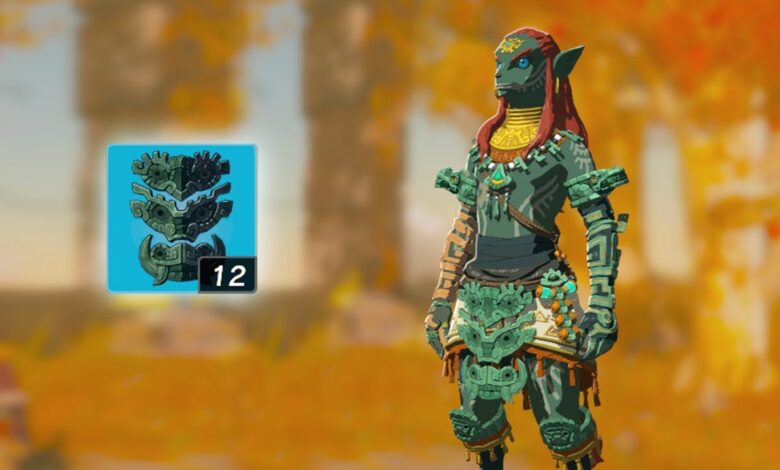Unveiling the Mythic Mystery: Exploring the ancient hero’s aspect

ancient hero’s aspect In the annals of human history, the figure of the hero looms large, casting a long shadow across cultures and epochs. From the valorous feats of Hercules to the epic odyssey of Odysseus, ancient heroes have captivated the imagination of generations, their stories echoing through time like the reverberations of a distant thunderclap. But what is it about these mythical figures that continues to enthrall us? What timeless truths do their tales convey, and what lessons can we glean from their exploits? In this comprehensive exploration, we embark on a journey into the heart of heroism, delving deep into the ancient myths and legends that have shaped our collective consciousness.
The Archetype of Ancient Heroes
At the core of the hero’s mystique lies the archetype, a universal symbol that transcends cultural boundaries and speaks to the fundamental aspirations of the human spirit. Defined by courage, strength, and noble purpose, the archetype of the hero embodies the highest ideals of heroism, serving as a beacon of hope in times of darkness and adversity. From the valiant warriors of ancient Greece to the chivalrous knights of medieval Europe, the hero archetype has taken myriad forms throughout history, yet its essence remains unchanged—a testament to the enduring power of myth and legend.
Heroic Myths and Legends
The ancient world teems with a rich tapestry of heroic myths and legends, each one weaving a compelling narrative of triumph and tragedy. Among the most celebrated is the story of Hercules, the demigod son of Zeus whose legendary twelve labors have become the stuff of legend. From slaying the Nemean Lion to capturing the Golden Hind of Artemis, Hercules embodies the indomitable spirit of heroism, overcoming seemingly insurmountable challenges through strength, cunning, and sheer force of will. Similarly, the epic of Gilgamesh, the legendary king of Uruk, offers a glimpse into the heroic ethos of ancient Mesopotamia, exploring themes of friendship, mortality, and the quest for immortality ancient hero.
The Hero’s Journey
Central to many ancient hero myths is the concept of the hero’s journey, a transformative odyssey that takes the protagonist from the mundane world into the realm of the extraordinary. Popularized by mythologist Joseph Campbell in his seminal work “The Hero with a Thousand Faces,” the hero’s journey is a narrative template that traces the path of the hero as he embarks on a quest, faces numerous trials and challenges, and ultimately returns home, transformed and enlightened. From the call to adventure to the final apotheosis, the hero’s journey mirrors the universal arc of human experience, resonating with audiences across cultures and generations .
Heroes in Ancient Literature
In addition to epic myths and legends, ancient literature abounds with heroic figures whose exploits have been immortalized in verse and prose. In Homer’s “The Iliad” and “The Odyssey,” we encounter the likes of Achilles and Odysseus, whose heroic deeds on the battlefield and the high seas have inspired countless generations. In the Norse sagas, characters like Thor and Odin embody the martial prowess and indomitable will of the Viking warriors, while in Indian epics like the “Mahabharata” and the “Ramayana,” figures like Arjuna and Rama exemplify the virtues of duty, honor, and sacrifice. Across cultures and civilizations, the hero’s journey unfolds in myriad forms, each one offering a unique perspective on the human condition ancient hero.
Heroic Ideals and Virtues
At the heart of ancient heroism lies a set of timeless virtues and ideals that transcend the boundaries of time and culture. Whether it be the courage of Achilles, the wisdom of Odysseus, or the selflessness of King Arthur, these virtues serve as guiding principles for aspiring heroes and moral compasses for society at large. Yet, while the specific virtues may vary from culture to culture, the underlying ethos of heroism remains constant—a steadfast commitment to honor, integrity, and the greater good. In a world rife with uncertainty and strife, the hero’s example shines as a beacon of hope, reminding us of the enduring power of human resilience and the triumph of the human spirit ancient hero.
Hero Worship and Cults
Throughout history, heroes have been revered as larger-than-life figures, their exploits celebrated in song and story, and their images enshrined in temples and shrines. From the cult of Hercules in ancient Greece to the veneration of saints in medieval Europe, hero worship has been a ubiquitous feature of human civilization, serving as a source of inspiration, guidance, and solace for countless devotees. Yet, while the object of worship may vary from culture to culture, the underlying impulse remains the same—a deep-seated longing for connection, transcendence, and the divine. In the modern era, the cult of celebrity has supplanted traditional hero worship, with figures from the worlds of entertainment, sports, and politics ascending to the status of demigods in the eyes of their adoring fans. Yet, for all their fame and fortune, these modern-day heroes remain mere mortals, their flaws and foibles laid bare for all to see ancient hero.
Iconography of Ancient Heroes
In the visual arts, ancient heroes are often depicted in larger-than-life form, their statues and sculptures serving as enduring testaments to their legendary exploits. From the friezes of the Parthenon to the murals of Pompeii, hero iconography abounds in the archaeological record, offering a window into the collective imagination of ancient civilizations. Yet, while the specific iconography may vary from culture to culture, certain motifs recur with striking frequency—the heroic pose, the triumphal gaze, the symbolic attributes of strength and valor. In the realm of literature and poetry, heroes are often portrayed in more intimate and introspective terms, their inner struggles and conflicts laid bare for all to see. Whether in the martial epics of Homer or the tragic dramas of Sophocles, the hero’s journey unfolds with timeless resonance, offering a mirror to the human condition and a glimpse into the eternal verities of the human soul.
Heroes in Religion and Mythology
In many ancient cultures, heroes occupy a liminal space between the mortal and the divine, their exploits blurring the boundaries between myth and reality, history and legend. In ancient Greece, figures like Hercules and Perseus were revered as demigods, their feats of strength and valor celebrated in song and story. Similarly, in Norse mythology, heroes like Thor and Odin wielded godlike powers, their exploits recounted in epic sagas and eddas. Yet, while the specific deities and heroes may vary from culture to culture, certain motifs recur with striking frequency—the hero’s descent into the underworld, his struggle against supernatural foes, his ultimate apotheosis and ascension to divine status. In the myths and legends of ancient civilizations, we encounter a rich tapestry of heroism and divinity, each one offering a unique perspective on the nature of the divine and the destiny of humankind.
The Legacy of Ancient Heroes
The legacy of ancient heroes extends far beyond the confines of myth and legend, shaping the very fabric of human civilization and influencing the course of history in profound and enduring ways. From the democratic ideals of ancient Greece to the chivalric code of medieval Europe, the heroic ethos has left an indelible mark on the collective consciousness of humanity, inspiring generations of poets, philosophers, and statesmen to strive for greatness and aspire




